Search Results
Showing results 401 to 420 of 1003

Zip Line
Source Institutions
In this design challenge activity, learners build a device to carry a Ping-Pong ball from the top of a zip line to the bottom in four seconds (or less!).
Shady Snakes
Source Institutions
In this activity, learners make pretend snakes and use them to explore estimation and measurement. Learners roll out clay snakes and estimate and measure their lengths and diameters.

Marble Ride
Source Institutions
In this activity, challenge learners to design a roller coaster ride for a marble using cardboard and other simple materials.

Hidden Rainbow
Source Institutions
In this math puzzle, one player hides a rainbow of four colors while another player tries to guess the hidden rainbow colors in the correct order.
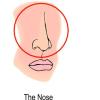
Smell Detective
Source Institutions
In this activity about olfaction (8th activity on the page), learners smell 10 different items with different odors. Then they try to identify the smells when they are mixed together.

Comparing Crystals
Source Institutions
In this chemistry activity (page 3 of the PDF), learners will learn about crystals by growing their very own.

Tasty Buds
Source Institutions
In this activity (1st activity on the page), learners explore their sense of taste and the structure of the tongue by taste-testing various foods.

For Your Eyes Only
Learners build particulate matter collectors--devices that collect samples of visible particulates present in polluted air.

Clay Bridges
Source Institutions
In this activity, learners make bridges using an oil-based modeling clay (plasticene). The instructions include discussion questions for both before and after bridge building.

Make Your Own Pendulum
Source Institutions
In this demonstration about force and motion, learners will explore the forces that affect a pendulum A simple model pendulum comprised of a ball and string demonstrates how pendulums work as well as

Cabbage Juice Indicator: Test the pH of household products
Source Institutions
Learners make their own acid-base indicator from red cabbage. They use this indicator to test substances around the house.
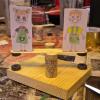
Magnetic Seesaw
Source Institutions
In this activity, learners build a seesaw powered by magnets.

Vestibular-Ocular Reflex
Source Institutions
In this activity, learners will perform various investigations to understand the vestibular-ocular reflex and learn about the importance of visual cues in maintaining balance.
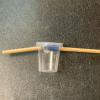
Make Pooter
Source Institutions
In this activity, learners will explore engineering to construct an insect collecting tool (insect aspirator). The pooter uses suction to safely collect smaller insects that nets miss or may injure.
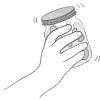
Shake and Break
Source Institutions
In this activity, learners will model the mechanical weathering and erosion of rocks in a stream or river.

Canjo
Source Institutions
In this activity, learners explore sound by constructing their very own banjo out of a coffee can. Learners experiment with the canjo to change the instrument's pitch and timbre.
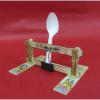
Catapult
Source Institutions
In this activity, learners build mini catapults using paint paddles and a spoon. Use this activity to introduce learners to forces and projectile motion.

Bernoulli and More Bernoulli
Source Institutions
This lesson guide includes six simple and quick activities to help learners better understand Bernoulli's Principle.

Energy Sources
Source Institutions
In this activity about the relationship between food and energy (page 5 of PDF), learners conduct an experiment to compare how much energy is released as heat from two different foods.

Milli's Super Sorting Challenge
Source Institutions
In this activity, learners separate materials based on their special properties to mimic the way recyclables are sorted at recycling centers.
